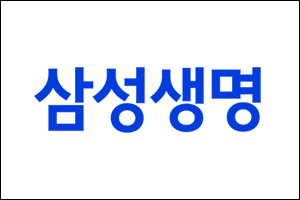According to the investment banking (IB) industry on Aug. 8, major Korean companies are preparing to raise funds through the public corporate bond market.
Recently, the global stock market was shocked by the liquidation of the yen carry trade in addition to concerns about the US recession. In the aftermath of this, the safe-haven phenomenon has intensified, and both overseas and domestic bond markets have continued to strengthen.
In the meantime, companies have been rethinking the timing of their financing while waiting to see if the US Federal Reserve (Fed) will cut interest rates. They have increased their reliance on short-term funding and waited for medium- and long-term rates to fall. Excluding capitalization bonds, the corporate bond market this year has been dominated by short-term (less than five years) issues.
This is not to say that corporates are looking to increase their long-term issuance anytime soon. However, with more clarity on the direction of market rates, they are rushing to raise money. Maturities are also likely to increase slightly. Considering that July and August are usually the slow months for the corporate bond market, the market seems to be sensitive to changes.
First, financial companies stand out. Hanwha General Insurance and KDB Life Insurance are preparing demand forecasts for subordinated bond issues worth 200 billion won and 100 billion won, respectively, this month. Depending on the results, they are open to issuing more. KB Securities and Kiwoom Securities are also planning to issue corporate bonds worth 300 billion won and 150 billion won, respectively, this month.
General companies such as S-Oil and Samsung C&T are also planning to raise 200 billion won and 300 billion won, respectively.
For high-grade bonds (AA or higher), the market is expected to have no major problems. However, the situation is still unstable for non-prime bonds.
Hanwha Solutions has decided to issue up to 800 billion won in new capital bonds (A+, negative). However, the fact that it is raising funds through a private placement rather than a public offering shows market concerns. KDB Life will hold a pre-subscription for the issuance of subordinated bonds (A+, negative) worth KRW 200 billion.
"The decline in market interest rates is creating a favorable environment for corporate bond issuance," said an investment banking (IB) official, "but we are concerned that the decline in interest rates accompanied by market instability may reduce the attractiveness of non-superior bonds." "The fact that Hanwha Solutions and KDB Life are capitalized securities could be a factor, but it remains to be seen whether the market will be able to absorb them given their relatively large volumes," he added.
Lee SungKyu (lsk0603@fntimes.com)










!['Reacting' to falling interest rates... S-Oil, Samsung C&T, etc. rush to issue high-grade bonds [Debt Capital Markets]](https://cfnimage.commutil.kr/phpwas/restmb_allidxmake.php?pp=002&idx=3&simg=2024080915330005834141825007d175114235199.jpg&nmt=18)
!['Reacting' to falling interest rates... S-Oil, Samsung C&T, etc. rush to issue high-grade bonds [Debt Capital Markets]](https://cfnimage.commutil.kr/phpwas/restmb_allidxmake.php?pp=002&idx=55&simg=2024080915330005834141825007d175114235199.jpg&nmt=18)
!['Reacting' to falling interest rates... S-Oil, Samsung C&T, etc. rush to issue high-grade bonds [Debt Capital Markets]](https://cfnimage.commutil.kr/phpwas/restmb_allidxmake.php?pp=002&idx=3&simg=2024080915352307664141825007d175114235199.jpg&nmt=18)
!['Reacting' to falling interest rates... S-Oil, Samsung C&T, etc. rush to issue high-grade bonds [Debt Capital Markets]](https://cfnimage.commutil.kr/phpwas/restmb_allidxmake.php?pp=002&idx=55&simg=2024080915352307664141825007d175114235199.jpg&nmt=18)
















![테슬라 대항마 ‘우뚝'…몸값 100조 ‘훌쩍' [K-휴머노이드 대전] ① ‘정의선의 베팅’ 보스턴다이나믹스](https://cfnimage.commutil.kr/phpwas/restmb_setimgmake.php?pp=006&w=69&h=45&m=5&simg=2026021603064404252dd55077bc221924192196.jpg&nmt=18)

![펩타이드 기술 강자 ‘이 회사', 비만·안질환까지 확장한다 [시크한 바이오]](https://cfnimage.commutil.kr/phpwas/restmb_setimgmake.php?pp=006&w=69&h=45&m=5&simg=2026021821300702131dd55077bc221924192196.jpg&nmt=18)
![‘IB 명가' 재정비 시동…NH투자증권, 김형진·신재욱 카드 [빅10 증권사 IB 人사이드 (6)]](https://cfnimage.commutil.kr/phpwas/restmb_setimgmake.php?pp=006&w=69&h=45&m=5&simg=2026021603103406515dd55077bc221924192196.jpg&nmt=18)


![건강보험 손해율 악화·법인세 인상에 보험사 주춤…현대해상·한화생명 순익 반토막 [2025 금융사 실적 전망]](https://cfnimage.commutil.kr/phpwas/restmb_setimgmake.php?pp=006&w=69&h=45&m=5&simg=20260219205719063188a55064dd1121160100217.jpg&nmt=18)
![압도적 ‘양종희' vs 성장의 ‘진옥동' 밸류업 금융 선두 다툼 [KB·신한 맞수 대결]](https://cfnimage.commutil.kr/phpwas/restmb_setimgmake.php?pp=006&w=69&h=45&m=5&simg=2026021603032808988dd55077bc221924192196.jpg&nmt=18)













![[그래픽 뉴스] 워킹맘이 바꾼 금융생활](https://cfnimage.commutil.kr/phpwas/restmb_setimgmake.php?pp=006&w=298&h=298&m=1&simg=202602021638156443de68fcbb3512411124362_0.jpg&nmt=18)
![[그래픽 뉴스] 매파·비둘기부터 올빼미·오리까지, 통화정책 성향 읽는 법](https://cfnimage.commutil.kr/phpwas/restmb_setimgmake.php?pp=006&w=298&h=298&m=1&simg=202601281456119025de68fcbb3512411124362_0.jpg&nmt=18)
![[그래픽 뉴스] 하이퍼 인플레이션, 왜 월급이 종잇조각이 될까?](https://cfnimage.commutil.kr/phpwas/restmb_setimgmake.php?pp=006&w=298&h=298&m=1&simg=202601141153149784de68fcbb3512411124362_0.jpg&nmt=18)
![[그래픽 뉴스] 주식·채권·코인까지 다 오른다, 에브리싱 랠리란 무엇일까?](https://cfnimage.commutil.kr/phpwas/restmb_setimgmake.php?pp=006&w=298&h=298&m=1&simg=202601071630263763de68fcbb3512411124362_0.jpg&nmt=18)
![[그래픽 뉴스] “이거 모르고 지나치면 손해입니다… 2025 연말정산 핵심 정리”](https://cfnimage.commutil.kr/phpwas/restmb_setimgmake.php?pp=006&w=298&h=298&m=1&simg=202601061649137526de68fcbb3512411124362_0.jpg&nmt=18)
![[신간] 고수의 M&A 바이블](https://cfnimage.commutil.kr/phpwas/restmb_setimgmake.php?pp=006&w=81&h=123&m=5&simg=2025091008414900330f8caa4a5ce12411124362.jpg&nmt=18)
![[신간] 리빌딩 코리아 - 피크 코리아 극복을 위한 생산성 주도 성장 전략](https://cfnimage.commutil.kr/phpwas/restmb_setimgmake.php?pp=006&w=81&h=123&m=5&simg=2025032814555807705f8caa4a5ce12411124362.jpg&nmt=18)
![[서평] 추세 매매의 대가들...추세추종 투자전략의 대가 14인 인터뷰](https://cfnimage.commutil.kr/phpwas/restmb_setimgmake.php?pp=006&w=81&h=123&m=5&simg=2023102410444004986c1c16452b0175114235199.jpg&nmt=18)


![[신간] 이게 화낼 일인가?](https://cfnimage.commutil.kr/phpwas/restmb_setimgmake.php?pp=006&w=81&h=123&m=5&simg=2026010610254801367f8caa4a5ce12411124362.jpg&nmt=18)

![[AD] 현대차, 글로벌 안전평가 최고등급 달성 기념 EV 특별 프로모션](https://cfnimage.commutil.kr/phpwas/restmb_setimgmake.php?pp=006&w=89&h=45&m=1&simg=20260106160647050337492587736121125197123.jpg&nmt=18)
![[AD] 현대차 ‘모베드’, CES 2026 로보틱스 부문 최고혁신상 수상](https://cfnimage.commutil.kr/phpwas/restmb_setimgmake.php?pp=006&w=89&h=45&m=1&simg=20260105103413003717492587736121125197123.jpg&nmt=18)
![[AD] 기아 ‘PV5’, 최대 적재중량 1회 충전 693km 주행 기네스 신기록](https://cfnimage.commutil.kr/phpwas/restmb_setimgmake.php?pp=006&w=89&h=45&m=1&simg=20251105115215067287492587736121125197123.jpg&nmt=18)
![[카드뉴스] KT&G, 제조 부문 명장 선발, 기술 리더 중심 본원적 경쟁력 강화](https://cfnimage.commutil.kr/phpwas/restmb_setimgmake.php?pp=006&w=89&h=45&m=1&simg=202509241142445913de68fcbb3512411124362_0.png&nmt=18)
![[AD]‘황금연휴에 즐기세요’ 기아, ‘미리 추석 페스타’ 이벤트 실시](https://cfnimage.commutil.kr/phpwas/restmb_setimgmake.php?pp=006&w=89&h=45&m=1&simg=20250903093618029117492587736121166140186.jpg&nmt=18)



